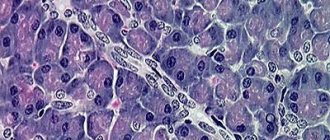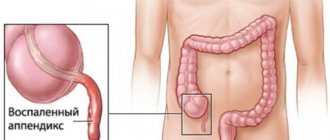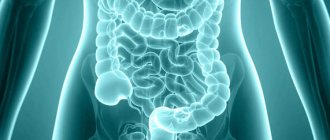Toxicosis is associated with pregnancy and most often occurs in the first months after conception. It is accompanied by nausea, vomiting, weakness - these signs, as a rule, appear daily and are especially pronounced in the morning. Women who become pregnant for the first time often do not know at what stage toxicosis in pregnant women begins, when does it end and can it threaten health?
When does nausea start during pregnancy?
Typically, episodes of vomiting or nausea begin around the fourth to ninth week of pregnancy and last for about nine weeks.
Keep in mind that the time when toxicosis begins may be different for each expectant mother and differ from pregnancy to pregnancy. And some pregnant women do not experience toxicosis at all during pregnancy.
If you don't know exactly your due date, use our pregnancy calculator.
SUITABLE APP FOR PREGNANT WOMEN
Pregnancy calculator
Be better prepared for your baby's arrival by knowing your estimated due date.
Select calculation method:
Tell us a little more:
//
Please select a date
//
Please select a date
Pregnancy calculator
Estimated date of birth* of your baby:
Congratulations! Are you on
* The calculation result is approximate. The baby will be born when he is ready. Check with your healthcare provider for your final due date.
It is important!
- You should see a gynecologist regularly in order, firstly, to detect pregnancy in time, and secondly, to track and eliminate the slightest irregularities.
- You can ask your gynecologist what other doctors you should visit. Endocrine disorders, metabolic problems, excess or underweight can affect conception.
Taking vitamins.
If your body doesn't have enough nutrients, your chances of getting pregnant may decrease. In the case of severe vitamin deficiency or lack of weight, menstruation, and with it ovulation, simply does not occur, that is, fertilization is impossible.
Why do you feel sick during pregnancy?
What exactly causes nausea during pregnancy is not yet clear, but the dependence of this condition on the increased content of pregnancy hormones - hCG (human chorionic gonadotropin) and estrogen - in the early stages of pregnancy has been established. These hormonal changes can also heighten your sense of smell and taste. You may become more sensitive to certain smells and the taste of food may change for you. For example, everything will seem sour, bitter, or simply taste bad. Read our article about food cravings and aversions to certain smells and tastes during pregnancy.
How can a gynecologist help you at the Diana Clinic?
In our clinic, highly qualified specialists in various specialized fields are waiting for you. We have a laboratory with the ability to conduct research and tests of any complexity and an ultrasound diagnostic room, where a new 3.4 D ultrasound machine is installed.
We offer:
- Development of an individual pregnancy management program for each patient with the appointment of a personal physician.
- Trimester screening examination with various programs, depending on the condition of the fetus and the pregnant woman.
- Additional studies (genetics, ultrasound) in any trimester to assess possible disorders in the fetus.
- An individual examination program and unscheduled urgent diagnostic procedures prescribed by the gynecologist leading the patient in connection with the manifestations of negative symptoms.
- Organization of specialized consultations with expert level specialists for women with complicated pregnancies, suspected fetal pathology and exacerbations of chronic diseases.
- Selection of gentle treatment for chronic and infectious diseases with minimal impact on the fetus and creation of opportunities for postpartum rehabilitation.
- Specialized preparation of patients with pathologies for childbirth and postpartum recovery.
Or sign up by phone: 8-800-707-15-60 (toll-free)
How does toxicosis manifest during pregnancy?
Women who experience toxicosis during pregnancy describe it as a feeling of nausea and nausea. In this case, the attack may or may not be accompanied by vomiting. Attacks can happen at any time and come and go throughout the day. For most expectant mothers, toxicosis of pregnancy occurs in short episodes during the day with vomiting once or twice a day. But each pregnancy and body are unique, so toxicosis can occur in different ways. There is a severe form of toxicosis that requires medical treatment - hyperemesis. Cases of hyperemesis occur in only 2% of all pregnant women. Although there is no consensus among experts about the causes of hyperemesis, it is believed that women carrying more than one child are more likely to experience severe nausea and vomiting than women carrying one child. In case of severe toxicosis during pregnancy, hospitalization may be required.
It is important!
- There are ready-made vitamin and mineral complexes designed to increase the likelihood of conception. If no serious abnormalities requiring observation by a doctor are identified, you can use them.
- This point also applies to men: the state of the body directly affects the motility and viability of sperm, as a result of which they may lose the opportunity to reach the egg.
- If your doctor does not recommend vitamins in a particular case, it is better to listen to his words. It is also worth choosing supplements after consultation with a specialist.
Nutrition.
Problems leading to failure to conceive are often caused by insufficient or unhealthy nutrition. For pregnancy to occur, an optimal weight is necessary: a lack of it leads to inhibition of reproductive processes, an excess is harmful due to possible endocrine disorders.
Nutrition: how to alleviate toxicosis
Some moms cope with nausea by eating salty snacks throughout the day (such as crackers), as well as ginger tea or ginger candies. Ginger is a natural remedy for nausea. If you suffer from very bad nausea during pregnancy, your doctor may recommend switching to a diet of neutral-tasting foods such as bananas, rice, applesauce, toast and tea, as these are easy to digest. Avoid spicy and fatty foods as these may increase nausea. Some studies have shown that foods high in protein may relieve nausea better than foods high in carbohydrates. Try adding protein to your diet and see if it helps you.
YOU MAY ALSO LIKE
Pregnancy symptoms
HCG during pregnancy and hCG level table in the early weeks
It is important!
- Protein is needed for normal sperm viability and motility, so it is important for a man to monitor the amount in his diet. The female body must also receive enough proteins: this is a building material for the body.
- It is important to control the amount of fat. Both a lack and excess of fats in the diet can affect hormonal levels. It is worth observing the golden mean.
- It is better for both men and women to avoid foods containing large amounts of chemical additives, as well as alcohol.
Physical exercise.
Physical inactivity harms all systems of the body, including reproductive. Moderate physical activity is indicated to improve metabolism, which in turn increases the likelihood of conception. Of course, excessive fanaticism, as in the case of nutrition, is inappropriate: excessive overload will only harm the body and reduce the likelihood of getting pregnant. It is necessary to maintain a level of physical activity that does not cause serious stress to the body. This will allow:
- keep the body in good shape;
- normalize metabolism;
- strengthen muscles, which is especially important for successful pregnancy;
- improve sleep;
- increase libido.
The effect of physical activity on emotional well-being is also important. Stress reduces your chance of getting pregnant, and moderate activity is a good way to relieve it. It is recommended for both parents to reconsider their lifestyle: both the female and male reproductive systems will benefit from healthy exercise. If the couple has already practiced sports or fitness, they can continue, but avoiding overload.
When to see a doctor
Contact your doctor as soon as possible when:
- you have sharply reduced the number of urinations during the day (less than 2-3 times per urination);
- urine is dark in color or has a strong odor;
- when you eat or drink something, you immediately vomit, and this continues for 24 hours or more;
- you have stopped gaining weight or lost two kilograms or more within one to two weeks;
- your skin, mouth and lips are very dry;
- when you get up you feel dizzy;
- you get tired quickly;
- your heart rate is racing
FAQ
- Typically, episodes of vomiting or nausea begin around the fourth to ninth week of pregnancy.
- Some moms cope with nausea by eating salty snacks throughout the day (such as crackers), as well as ginger tea or ginger candies.
- What exactly causes nausea during pregnancy is not yet clear, but the dependence of this manifestation on the increased content of pregnancy hormones - hCG (human chorionic gonadotropin) and estrogen - in the early stages of pregnancy has been established.
It is important!
- The sperm is able to reach the egg pushed into the fallopian tube in about 2 hours, after which fusion occurs.
- One sperm, the first to penetrate the membrane, merges with the egg, after which it becomes impenetrable to others. A zygote is formed - a cell from which the embryo will begin to develop.
Implantation of fertilized egg.
Over the next few days, under the influence of muscle contractions and cilia of the mucous membrane, the fertilized egg moves towards the exit of the fallopian tube, that is, to the uterus. Around the same period, the process of fragmentation begins: the cells of the zygote begin to divide, but its overall size does not increase, each subsequent cell becomes smaller than the previous one. Having descended into the uterus, the zygote reaches the blastocyst stage in a few days, after which it gets rid of the membrane and is implanted inside the endometrium - the lining of the uterine walls. Under the influence of the hormone progesterone, aimed at maintaining pregnancy, the endometrium becomes thicker and surrounds the fertilized egg on all sides. Implantation allows you to protect the embryo and additionally nourish it with the secretion produced by the endometrial glands. Several days usually pass from conception to implantation, and the countdown of the first embryonic week does not begin with it, but with the formation of the zygote.
Symptoms
The main signs of toxicosis in the second half of pregnancy are:
- swelling of the face, arms and legs,
- increased blood pressure,
- the presence of protein in the urine,
- headaches and nausea.
The danger of this pathology is that it can be difficult to diagnose immediately. Often women seek help late, when the pathology is actively developing. The consequences of delayed treatment can be disastrous, including kidney failure, pulmonary edema, and heart attack.
The latest and most dangerous stage of toxicosis in the second half of pregnancy is eclampsia. When it occurs, convulsions occur, there is a risk of retinal detachment, and fainting occurs. To avoid dangerous complications, pregnant women need to undergo regular examinations.










